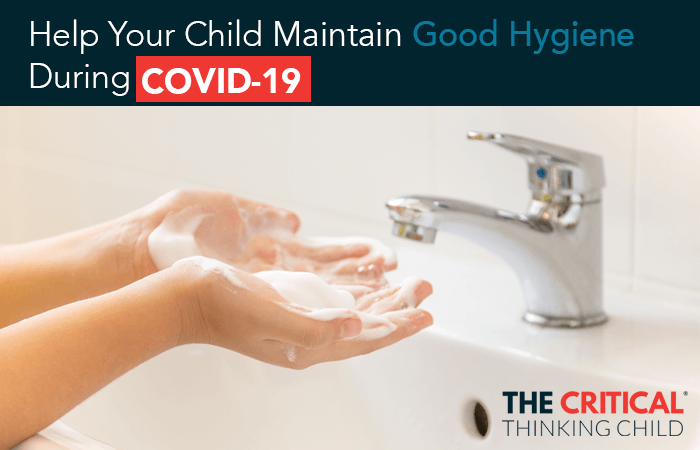As we adjust to a new normal, social distancing and improved hygiene habits are more important than ever. If you have children, especially young children, you’re navigating a number of new challenges. It’s absolutely critical that we help prevent the spread of COVID-10 (coronavirus) throughout our population. Our older and immunocompromised friends and family depend on it.
As parents, here are a few steps you can take to help your child and your community maintain good hygiene and social distancing habits during this difficult time:
Avoid highly trafficked areas and maintain social distance
Playdates, museum visits, and trips to the park are all on a hiatus, which means it’s time to reevaluate how you’re spending time with your children. This is especially challenging if your child’s school has been shut down. You may have hours of time to fill and many of your usual go-tos are closed.
In light of this situation, it’s more important than ever to establish a routine at home. Create a schedule for you and your child that incorporates play time, study time, and family time and stick to it. We’re hosting a free training on Saturday, March 21 about how to support your child’s learning at home during coronavirus. Click here to register.
If you do need to step outside for essential tasks, like grocery shopping, now is the time to teach your child about social distancing. You can introduce it as a game, telling them that we’re pretending to have big, invisible bubbles around us. The rules of the game are to make sure no one pops anyone else’s bubble. To do that, you need to keep distance between yourself and others.
Model discouraging physical touch and encouraging good hygiene
You may run into situations where someone you know wants to hug you or your child, or reaches for a handshake. This is a good opportunity to model responding to the current situation with compassion. Politely decline, explaining that you’re following public health guidelines around minimizing physical touch. Offer a head nod or an elbow bump as an alternative.
What do you do if someone coughs in public without covering their mouth, fails to wash their hands, or constantly touches their face? This is another instance where you can model compassionate assertion with your child. Calmly approach the person (while maintaining a good distance) and ask them to please practice the recommended hygiene procedures, for the health and safety of others. Do not ridicule, accuse, or argue with them. Simply make your request and move on.
Make good hygiene habits fun for your child
Now is a perfect time to make good hygiene fun! Choose a song to sing when washing your hands and sing it out loud, together. Work with your child to come up with a list of times when you should wash your hands. For example, your list might include items like: before cooking dinner, after going to the bathroom, before leaving the house, after returning home, etc.
In addition, you can have a daily “wipe-down” party at home. Armed with cleaning supplies, you and your child race to clean as many surfaces as possible (think countertops, doorknobs, handles, etc.). Whoever wipes down the most surfaces first wins!
Have a family discussion about hygiene, COVID-19, and going outside
The topic of coronavirus is everywhere. Everyone is talking about it, from teachers to government officials. Odds are, your child has been hearing some of these conversations, and they probably have questions.
One of the best things you can do as a parent right now is work to mitigate panic and instead encourage compassion and prevention. Your child may be too young to understand the implications of a global pandemic (and the topic may scare them), so take time to sit down and let them ask you questions. Acknowledge their emotional needs and use the conversation as an opportunity to reinforce the need for good hygiene.
You can also help engage their critical thinking and problem-solving skills. When discussing coronavirus, prompt them with questions of your own. Ask them why they think hand washing is so important, and why they think schools are taking time off. See if you can help guide them to their own conclusions.
Stay safe, stay healthy, and stay clean
Right now, the most important takeaway for your child is to stay safe, stay healthy, and stay clean. While that may lead to an unprecedented amount of time indoors and at home, it doesn’t mean you can’t have fun! During our free, live training next week we’re going to dig into how you can support your child’s learning at home during coronavirus. Click here to register.



